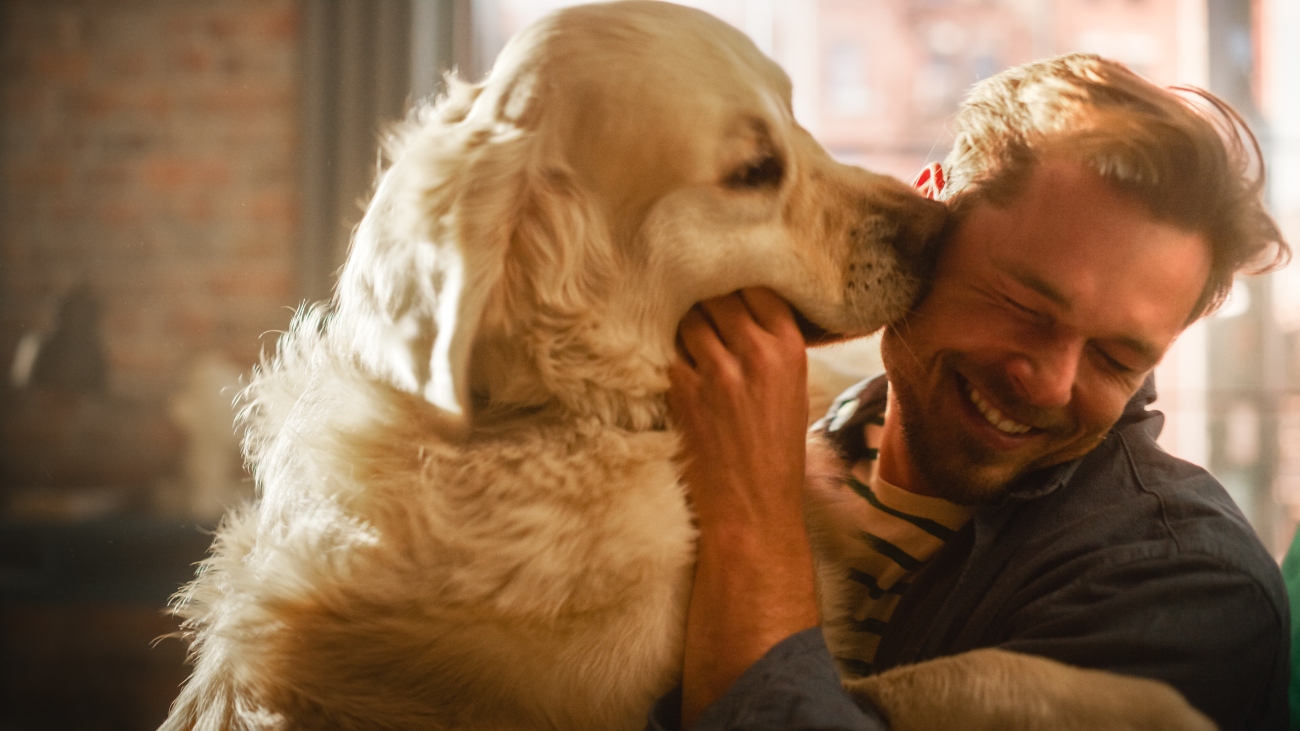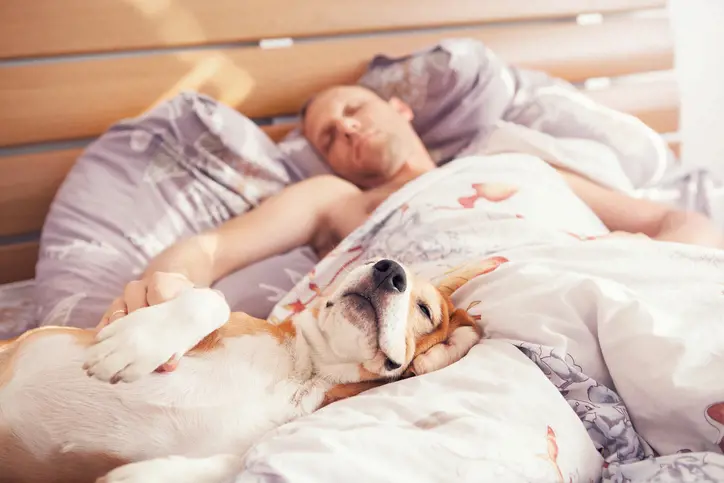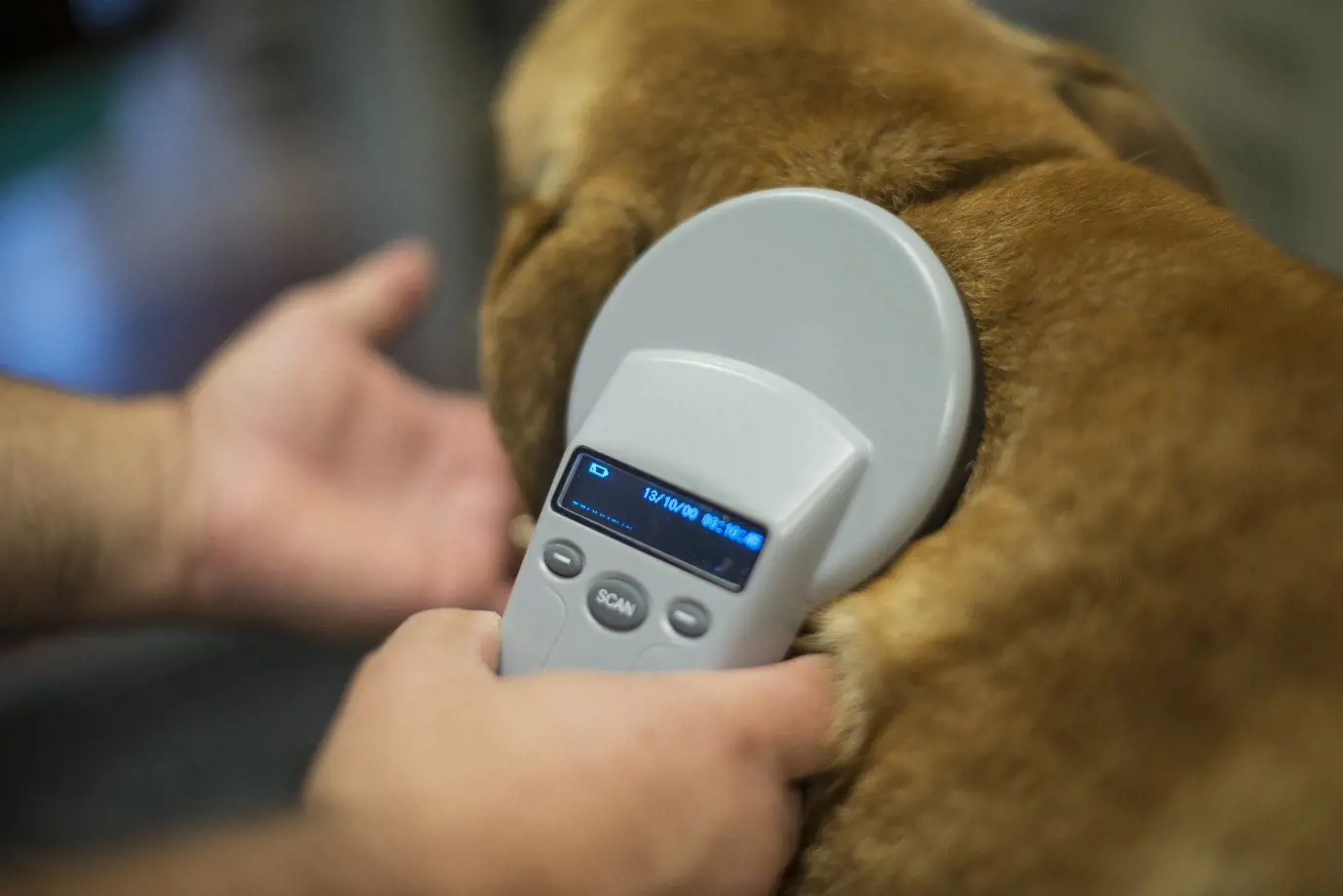Is L-Tryptophan safe for dogs?
2nd June, 2023

L-Tryptophan produces feel-good hormones for anxious pups but is it safe? Get to know what it is, ways it can help dogs and how to tell if your pet has anxiety.
Anxiety and other emotional disorders are some of the most common health concerns in dogs. One study suggests around 17.2% of canines have separation anxiety and up to a whopping 39.2% experience noise sensitivity, causing aggression and other negative behaviours in our four-legged friends.
No pet parent wants to see their beloved pooch suffer from anxiety. Fortunately, there are natural supplements that can help, like L-Tryptophan.
Read on to discover how this ingredient could make life a little easier for your nervous pooch and how animal insurance for dogs can help you get a proper diagnosis and possibly treatment for this behaviour. It is important to mention that not all behaviour is covered by insurance it will depend on the cause of this behaviour.
What is L-Tryptophan?
There are certain essential amino acids that dogs need to help with brain functions – one being L-Tryptophan. However, your canine companion can’t create it on their own, so they need to get their dose through their food and supplements.
According to the veterinary experts at JOII: “The amino acid is a building block to proteins and certain hormones such as serotonin. It can be combined with other natural calming agents and is also found in certain foods such as chicken, turkey and eggs.”
At Purely Pets, we work together with JOII vets to give you round-the-clock access to professional advice for your furry friend. If you have animal insurance for dogs with us, you can contact the video consultation service 24-hours a day.
How can L-Tryptophan help dogs?
So, we know this amino acid is essential for your pup, but how exactly does it help them?
Reduces anxiety
Remember we said the amino acid produces serotonin? “Serotonin is a ‘feel good hormone’, so increasing L-Tryptophan levels can help with feelings such as anxiety,” say the experts at JOII. “It’s contained in many pet diets and supplements aimed at reducing anxiety.”
Serotonin gets to work on your dog’s nervous system, reducing stress and calming your pup. To get the most out of the positive effects, you’ll need to pair supplements with a healthy lifestyle, which means plenty of walks and following a well-balanced diet suitable for your dog’s size and age.
L-Tryptophan could help your pet with several types of anxiety, including both separation anxiety and noise sensitivity.
Aids healthy sleep
If you’ve ever found yourself feeling particularly sleepy after a chicken dinner, it’s likely due to the serotonin levels from L-Tryptophan.
The amino acid works similarly in dogs, regulating their sleep pattern and stopping them from feeling restless. Stress and anxiety often make it difficult for your pup to doze off easily, so a bit of L-Tryptophan in the evening could soon put a stop to their night-time wakings.
Helps calm abnormal behaviour
It’s not only anxiety that L-Tryptophan helps with. If you’ve got a dog that won’t stop attacking the postman or one that barks non-stop when you leave the house, you might find a small dose of the amino acid works wonders.
Vet Gonçalo da Graça Pereira studied the effects of L-Tryptophan in dogs and noticed that abnormal behaviours, like barking and staring, decreased after taking the supplement for eight weeks.
While the results aren’t conclusive and more research needs to be done, it’s certainly another strong argument to the positive effects the amino acid can have on dogs.
Provides natural health benefits
Yes, the amino acid is mainly used to combat anxiety in dogs, but it might have other benefits, too. By improving cell and tissue structure, older canines could experience pain relief from chronic conditions like arthritis.
L-Tryptophan may also reduce the risk of seizures in epileptic dogs and help regulate hunger, heart health and temperature.
Is L-Tryptophan safe for dogs?
After reading the numerous possible benefits of L-Tryptophan, you might be considering it for your anxious pup, but is it actually safe to give them?
The experts at JOII say: “L-Tryptophan is safe for use in dogs. The evidence on its effectiveness is mixed, but there’s no harm in trying supplements containing L-Tryptophan.”
The amino acid poses very little risk to your dog’s overall health, so it’s well worth trying it to see if it helps symptoms improve. Just remember to check with your vet first – before you give anything new to your pet, they’ll make sure they’re happy and healthy and shouldn’t have any issues with the supplement.
How much L-Tryptophan should I give my dog?
Whenever you buy an L-Tryptophan supplement, you should find the dosage on the label, but an average dose for adult dogs is around 6.5 mg for every pound they weigh. For puppies, it’s a lot more, about 41 mg per pound, as they’re still developing.
One or two doses a day is the norm, but always check with your vet first – the dosage may differ depending on what your pup needs it for.
“It’s important to follow dosage guidelines as giving too much can lead to problems like vomiting, diarrhoea and itching,” warn JOII’s experts. “Although it’s rare, there can sometimes be allergies or intolerances to L-Tryptophan. So, when introducing it, it’s important to monitor your pet for negative symptoms.”
If you notice you’ve got a poorly pup on your hands after giving them the supplement, take them to the vet immediately. Your specialist animal insurance for dogs may be able to help cover the cost of care and treatment to get them back to their old self again*.
What are the side effects of L-Tryptophan in dogs?
As long as you stick to the recommended dosage, L-Tryptophan is generally safe for dogs, but there’s always a small risk of side effects. None are too serious or going to last a long time, but keep an eye out for:
- Diarrhoea
- Vomiting
- Stomach pain (arched back)
- Itching and redness
Another very rare but more dangerous side effect is having too much serotonin in their body – serotonin syndrome. Dogs with this condition can experience:
- High temperature
- Rapid heart rate
- Confusion
- Trembling
- Seizures
Any of these symptoms are a medical emergency, and you’ll need to get your dog to the vet immediately.
Luckily, this negative effect usually only arises if your pet is on another medication that interacts negatively with L-Tryptophan, so always let your vet know if your dog takes anything else before trying the supplement.
What is separation anxiety in canines?

An extremely common cause of stress in our canine friends is separation anxiety. If you’ve started leaving your pup at home for longer periods or after moving home, you might have noticed a big change in their behaviour.
Most pet parents discover their dog is suffering when they come home to destruction or accidents around the house even though they’re toilet trained. Your neighbours might also complain of barking or you hear whining the moment you shut the front door.
Whatever the case, you need to do something about it, or it can eventually lead to depression and a host of other health concerns. That’s the last thing you want for your dog.
Training them to be left alone over time is the best way to combat separation anxiety. Not sure how? We teamed up with Clinical Animal Behaviourist, Rosie Bescoby, who gave us some top tips. Check out the video now!
We’ve also got lots more advice on coping with separation anxiety in dogs elsewhere on our site. If you’re finding it difficult to do it alone, speak to your vet. They can put you in contact with a behavioural expert to help you and your pup overcome the separation anxiety together.
So how do I know if my dog is anxious?
Has your pup been acting a little different lately but you’re not sure what’s up? They might be suffering from anxiety.
If only they could tell us how they’re feeling! Well, they can! You just need to learn to read their body language. Battersea Dogs Home gives us a few tell-tale signs to look out for:
Tail drooping between legs
Excessive panting
- Yawning
- Paw raises
- Lip licking
- Pacing
- Pinned-back ears
You might also spot some negative behaviour start creeping in, like aggression, snarling and being destructive, especially when left alone.
If your pet is acting out of the ordinary, try to figure out if anything might have caused a disruption to their normal routine. This can help your vet determine the cause so you can do your best to eliminate the trigger.
Don’t forget, you can use our 24-hour vet video service for advice regarding your pet’s behaviour if you have animal insurance for dogs with us.
Pet insurance for your precious pup
Watching your canine companions’ behaviour** suddenly change is worrying for any pet parent. With animal insurance for dogs in place, you can get your pet the emergency attention it needs for a proper diagnosis and treatment plan.
At Purely Pets, we care about your dog just as much as you do, which is why we offer 24/7 vet video calls with the experts at JOII for quick advice when you really need it.
To choose from 15 levels of award-winning lifetime cover to suit you and your pup, get in touch for a quick quote today.
*Please refer to the terms and conditions for the full cover details and exclusions
**Behaviour is not covered by insurance until the policy has been in force for 24 months
Helpful Pages
Recent Posts
Pet Insurance Quote
- 98% claims paid *
- Claims paid directly to vets
- 24/7 vet video consultations
- Interest free monthly payments




